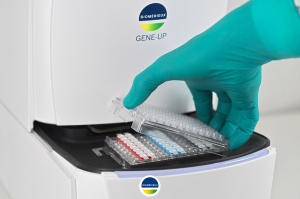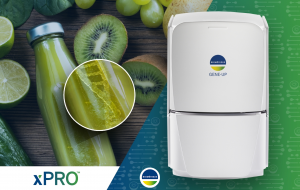In the food and beverage industry, rapid and accurate detection of spoilage organisms is essential to maintain product quality and consumer trust. Traditional microbiological methods often require multiple tests and several days to confirm contamination and spoilage potential—delaying production and increasing costs. PCR-based detection assays offer a transformative alternative:
- Fast results (often within 24–48 hours)
- High specificity and sensitivity
- Simultaneous detection of multiple targets
- Reduced false positives and manual errors
These molecular tools are especially valuable for detecting non-pathogenic spoilage organisms like Alicyclobacillus spp., which can survive pasteurization and produce guaiacol, a compound responsible for off-flavors in fruit juices.
Understanding Alicyclobacillus and guaiacol spoilage
Alicyclobacillus spp. (ACB) are thermophilic, acidophilic, spore-forming bacteria that thrive in acidic beverages. While not harmful to health, they pose a significant quality risk due to their ability to produce guaiacol, a phenolic compound with a smoky or medicinal odor. However, not all ACB strains cause spoilage. Only those capable of producing guaiacol lead to the off-flavors that compromise product quality. This distinction is critical: a positive ACB test does not necessarily mean the product is spoiled.
A new generation of detection: One test, two answers
To address this challenge, researchers developed a single PCR-based assay that can:
- Detect the presence of Alicyclobacillus spp.
- Predict whether the strain can produce guaiacol
The assay was developed through a genomic research initiative aimed at identifying the genes responsible for guaiacol production. By targeting these genetic markers, the assay can differentiate spoiler from non-spoiler strains with high accuracy. This innovation replaces the traditional two-step workflow consisting of microbial detection followed by an enzymatic guaiacol test, delivering results in just over a day—compared to 5–7 days required by conventional methods. It enables producers to release products faster, reduce waste, and maintain flavor integrity—without compromising safety or quality.
Watch and learn
Curious how this works in practice? Watch this video to see how rapid detection of Alicyclobacillus spp. and guaiacol is transforming beverage quality control.



 Funded by the
European Union under Grant Agreement N° 101136248. Views and opinions expressed are however those of the
author(s) only and do not necessarily reflect those of the European Union or REA. Neither the European
Union nor REA can be held responsible for them.
Funded by the
European Union under Grant Agreement N° 101136248. Views and opinions expressed are however those of the
author(s) only and do not necessarily reflect those of the European Union or REA. Neither the European
Union nor REA can be held responsible for them.